Ban Home Plate Collisions
In baseball contact is frowned upon. Any contact except for the ball hitting the bat is discouraged and can include discipline if it is severe enough. So why in a sport that steers away from collisions do we have one of the most violent incidences in professional athletics?
Home plate collisions between base runners and catchers are one of the most dangerous plays in sports. You have a player running full speed into another player that may or may not be expecting the collision. While some fans might see this play as entertainment, it’s nothing but dangerous and needs to be banned by Major League Baseball.
There have been some scary injuries involving home plate collisions. Most recently, league-MVP Buster Posey destroyed his ankle in 2011 when Scott Cousins barreled into him at the plate. While Cousins was safe and the Florida Marlins won the game, Posey was out for the season.
Cousins wasn’t disciplined for the collision. He said he wasn’t trying to hurt Posey and there’s no real evidence that says his intent was to injure. It was a hard baseball play that happens too often during the course of a 162-game season and it needs to stop.
In any other sport, even the ones with full-contact, if a player hits another player who is considered defenseless the player initiating the contact is penalized in the game and usually suspended or fined after the fact.
The NFL is notorious for protecting defenseless wide receivers and has given out hundreds of thousands of dollars in fines to defensive backs for rocking players who don’t have the means to defend themselves.
In a good majority of home plate collisions, the catcher is concentrating on catching the ball from the outfield; he doesn’t know how fast or where in the baseline that runner is, which gives the runner all the advantage. Can the base runner try to avoid the contact and get around the catcher? Absolutely.
But the more advantageous play for the runner is to barrel into the catcher who will then not have the chance to catch the ball cleanly or if the ball is already caught, has a greater chance of dropping the ball from the mitt during the collision.
The Posey-Cousins incident isn’t an isolated occurrence. Cardinals catcher Yadier Molina in 2012 took a vicious hit from the Pirate’s Josh Harrison. Surprisingly Molina was not badly injured. It was a scary hit that knocked him out for a minute but he was able to leave under his own power.
It was because he was OK that the story didn’t make national news and that’s where this issue can get scary. Home plate collisions happen almost every day during the MLB season. The most severe ones get coverage, the lesser ones don’t. I’m worried that it will take a catcher snapping his neck and becoming paralyzed before action will be taken.
But these collisions aren’t just harmful for the catchers. In football the person delivering the blow can prepare for it and comes away injury free while the receiver can be severely injured. In baseball, the base runner is plowing into a catcher wearing padding while the runner is wearing nothing. It could easily be the runner that breaks a bone or tears a muscle when the collision takes place.
The MLB Players Union needs to take action and get a rule banning home plate collisions. In my mind it should be a $10,000 fine and a five-game suspension for the first offense. Repeat offenders will need to be handled differently.
However, it’s MLB’s vice-president of on-field operations Joe Torre who will make this decision and will have to work with the union. But Torre doesn’t seem to see the need to change. Despite these serious injuries occurring on a yearly basis, Torre’s view is to not change the rules because that’s the way baseball has always been.
I’m a fan of Torre’s and old-school baseball. He was probably a fan of Pete Rose blowing up Ray Fosse in the 1970 All Star game at home plate. That’s right – in an All Star game Rose, who always played hard, knocked Fosse out cold because he wanted to win. I’m all for winning, but I’m also for safety.
These collisions, while exciting for the fan, are a huge hazard to baseball players and do very little for the actual game. Legislation needs to be put forward to ban these collisions and protect the players sooner before it’s too late. If you want collisions watch football or hockey – baseball can’t fall into that same category.
Mike Zoller is a contributor for Porchdrinking.com. He works full-time in the Northwestern University Athletic Department. Follow him on Twitter @mikezoller.


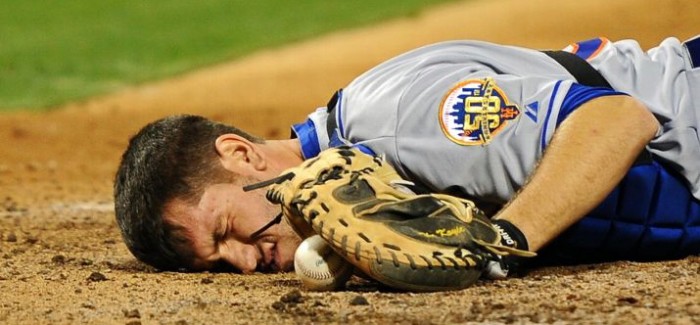
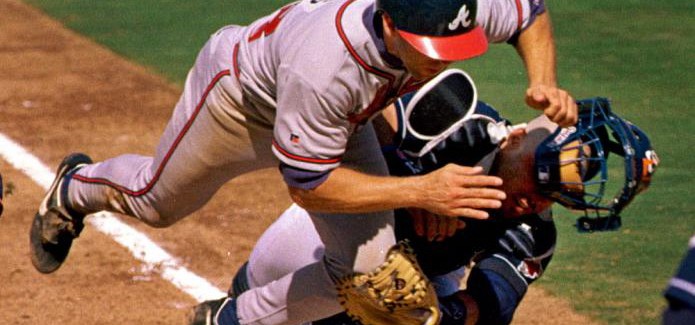
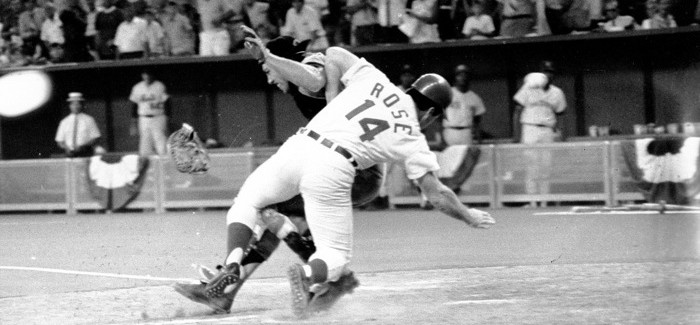
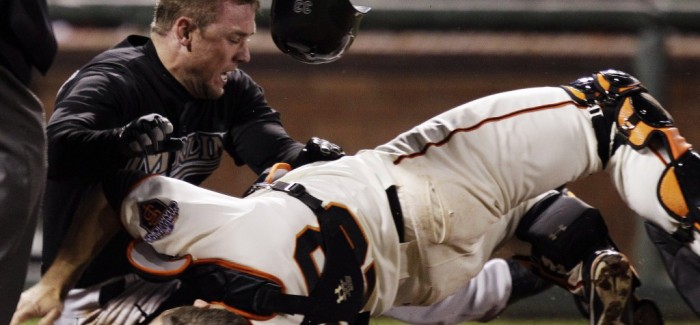
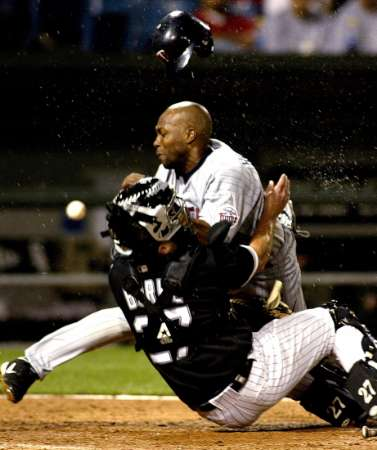
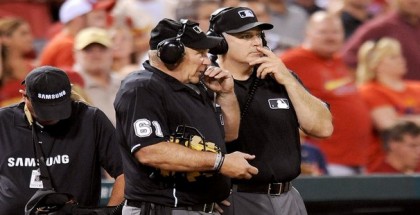
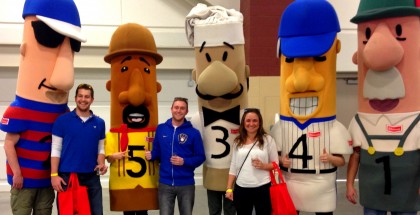

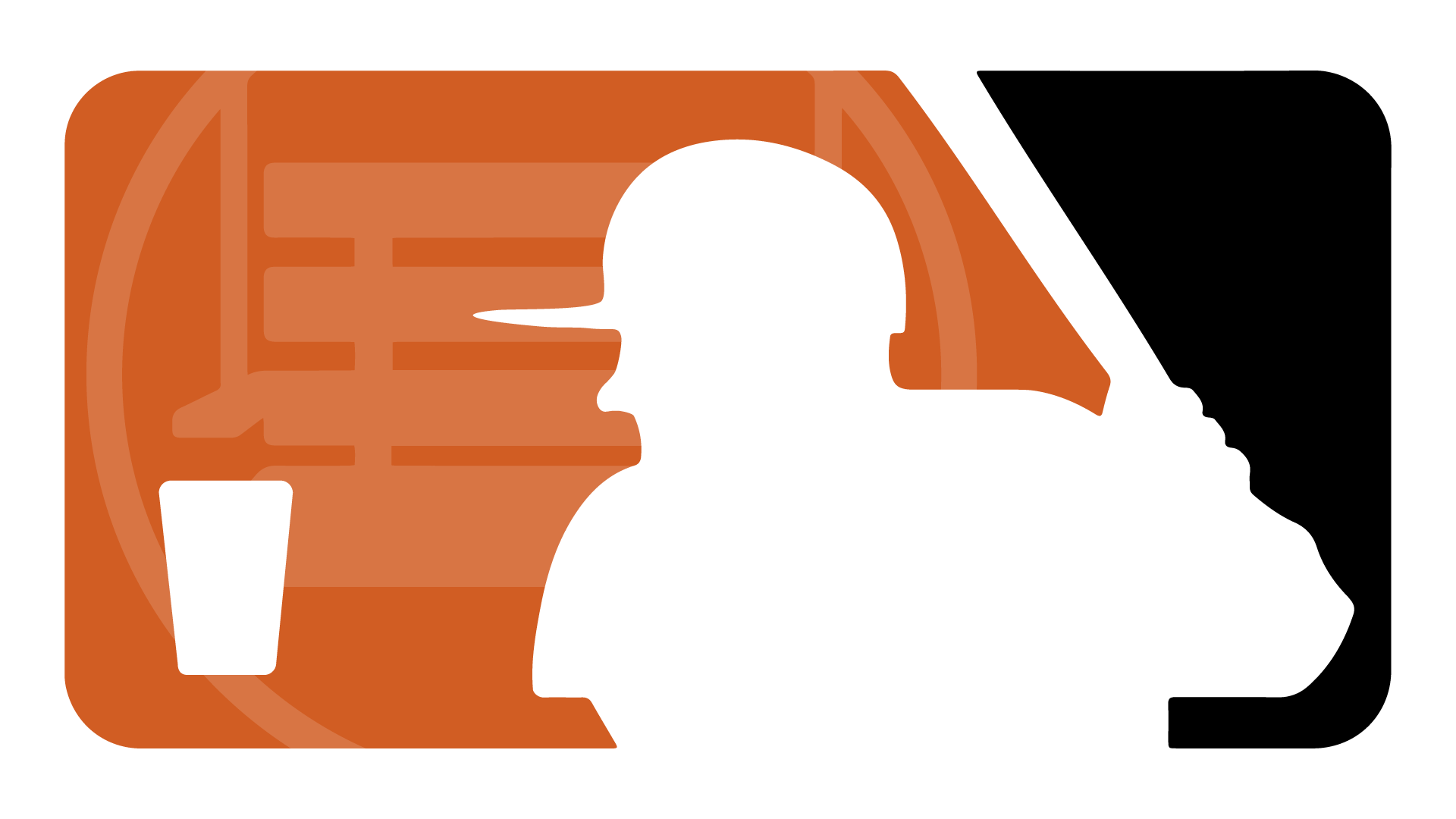

Submit a Comment